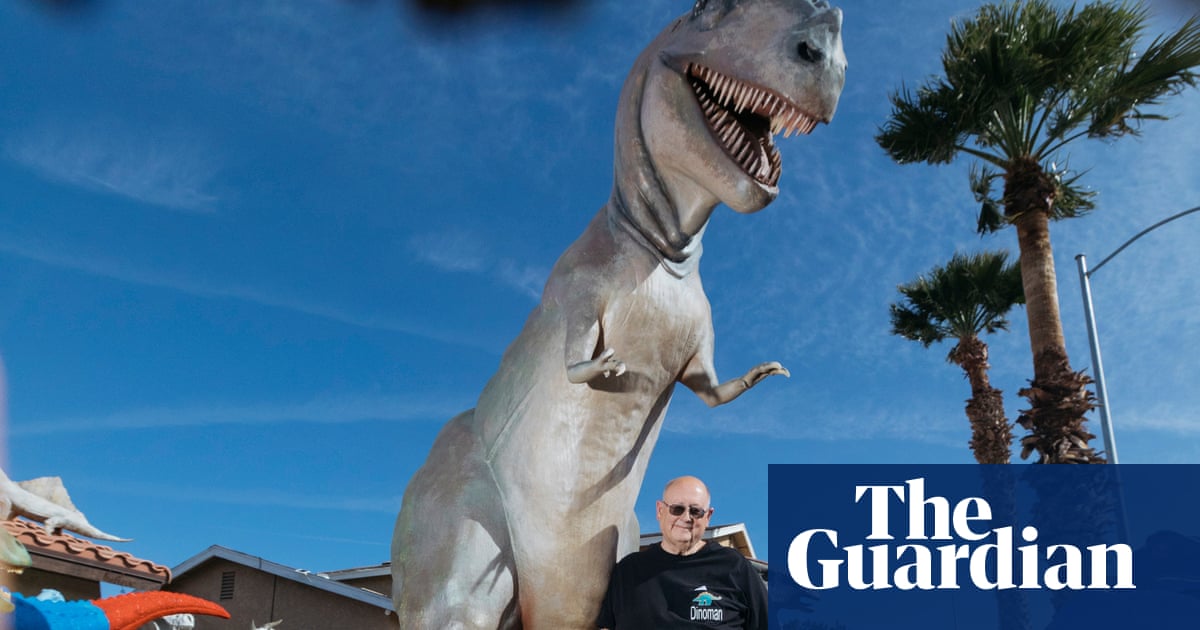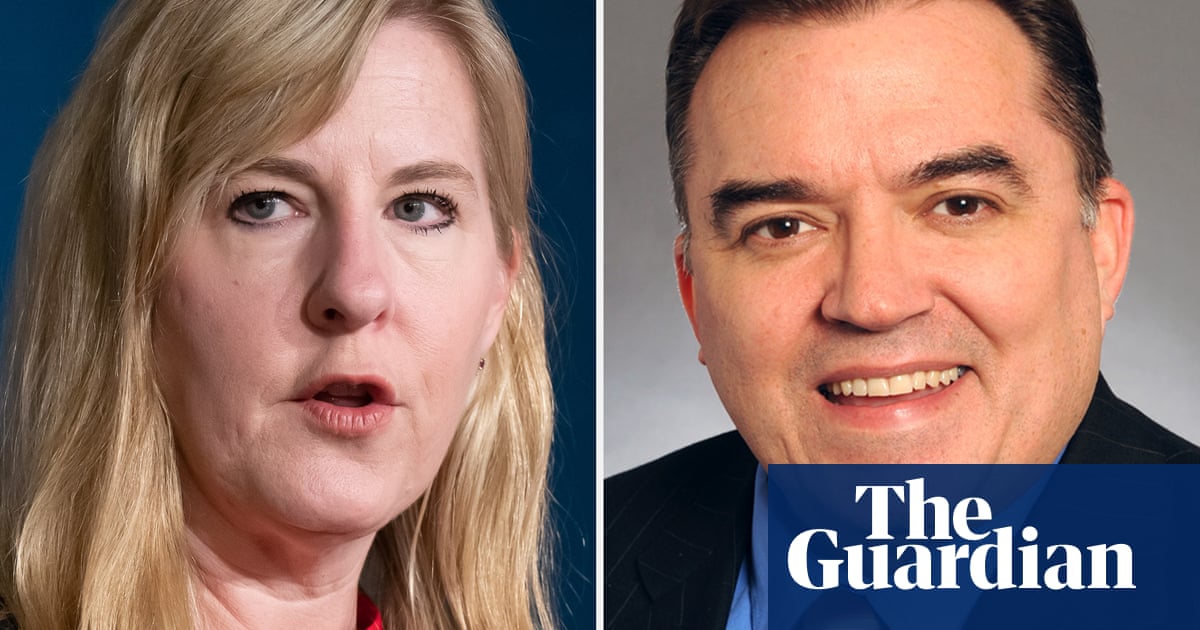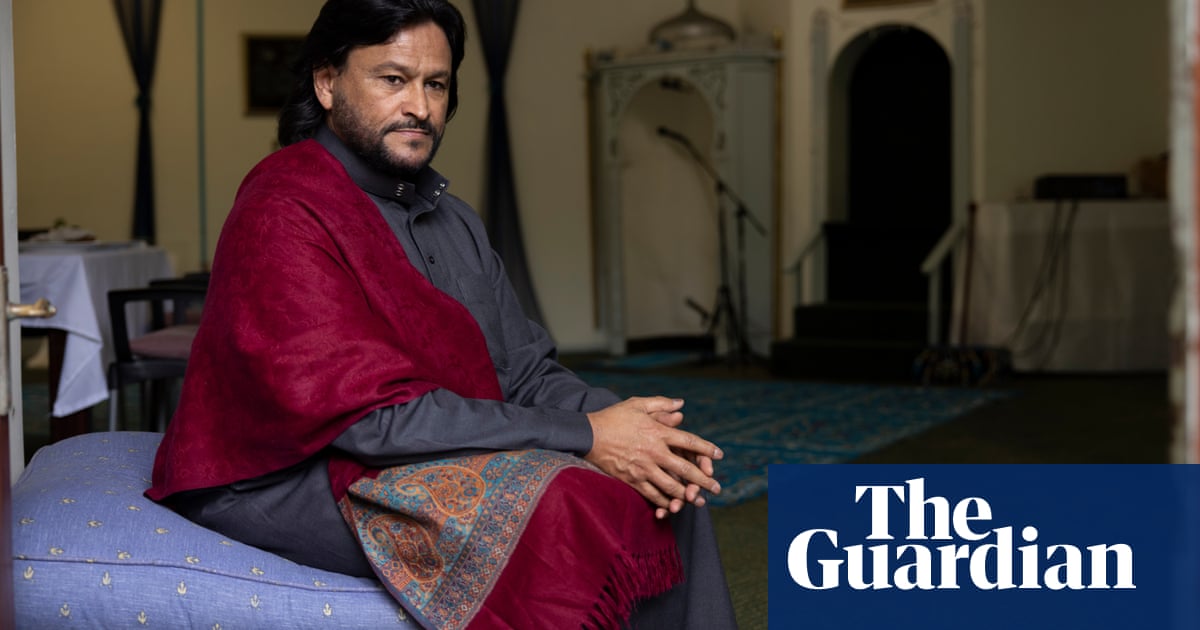When Miranda July’s All Fours was published in May last year, it triggered what felt like both a spontaneous resistance movement and the sort of mania last experienced when the final Twilight book dropped, except this time for women in midlife rather than teenage girls. Two friends separately brought it to my house, like contraband dropped out of a biplane. Book groups hastily convened, strategically timed for when the men were out of the picture.
The story opens with a 45-year-old woman about to take a road trip, a break from her husband and child and general domestic noise. She’s intending to drive from LA to New York, but is derailed in the first half hour by a young guy, Davey, in a car hire place, to whom she is passionately attracted. The next several weeks pass in a lust so intense, so overpowering, so lusciously drawn, it’s like a cross between ayahuasca and encephalitis. The narrator is subsumed by her obsession, and disappears her normal life. The road trip is a bust from the start, but the effort of breaking the spell and going home looks, for a long time, like way too much for the narrator, and when she finally does, to borrow from Leonard Cohen (perhaps describing a similar situation), she’s somebody’s mother but nobody’s wife.
The New York Times called it “the first great perimenopause novel”, which is incorrect – not because you could easily name 10 others, rather because what it ignited was not an honest heart-to-heart about hormones, but something far more radical. What if a woman just told the truth, about sex, monogamy, marriage, mortality, domesticity, friendship, the life of the mind? The disruption of norms would be so immense that you wouldn’t, as a reader, necessarily need your circumstances or feelings to correspond to the author’s for that to upend your life. One woman who nearly divorced her husband after reading it said: “I think what I felt, which I think is what a lot of us feel, is permission to be undone.”
All Fours was an immediate success. It spent nearly a year on the Indie Bestseller list. It was a finalist in the National Book Awards in the US, as well as being named on the best books lists, 2024, by the New York Times, the New Yorker, Time, the Washington Post, PBS, Oprah, Vogue and Vulture.
Now, a year on, the paperback is coming out, and I’m talking to July as she waits to find out whether she has won the Women’s prize . Our conversation, which would normally be part-retrospective – there’s a funny bit in All Fours when she talks about the female artist’s lifecycle: first “hot young thing”, then wilderness years, and a final spurt of attention before you die – is instead all about the reaction to this book. “I wrote it as if it was OK – as if everyone knew what I was talking about,” July says, looking bluestockingy in round glasses, from her home in Echo Park, Los Angeles. “As if you could make a joke about something shameful, as if we had all already talked about that thing. Even though we hadn’t. So it was skipping a few steps, even to have humour about it. I was building on an internal world that I believed existed, not just in me.”
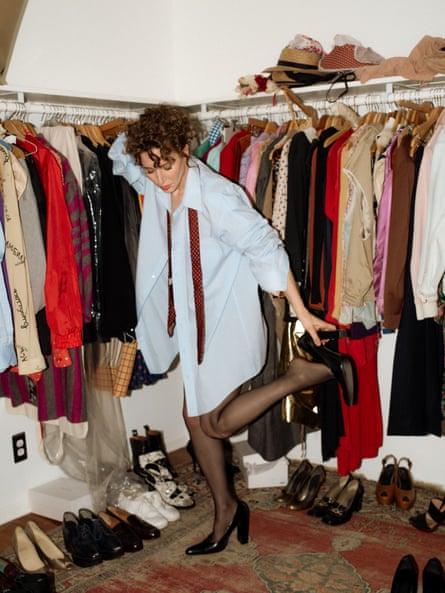
Miranda July is 51, was born in Vermont to two writer parents, and has the ultimate boho CV – she said once that her last shitty job was at the age of 23, as a car-door-unlocker at Pop-A-Lock, a US chain of locksmiths, which makes her ability to make a living as, variously, a performance artist, a film-maker, a writer, almost mythical. She came to indie prominence with Me and You and Everyone We Know, her first full-length film, in 2005 – it won the best first feature at Cannes that year. It has the most endearing, infuriating sequence: someone buys a goldfish and accidentally drives off, having left it on top of his car. July, starring in the film because, realistically, she was the only person who could have, decides from inside her own car that the fish will certainly perish, and delivers an ode: “I didn’t know you, but I want you to know that you were loved.” Her voice was incredibly distinctive – she nailed all those universal feelings such as awkwardness, futility, delight, yet was as far as you could imagine from being an everywoman. There followed an exquisite book of short stories – No One Belongs Here More Than You – in 2007, and her first full-length novel, The First Bad Man, in 2015.
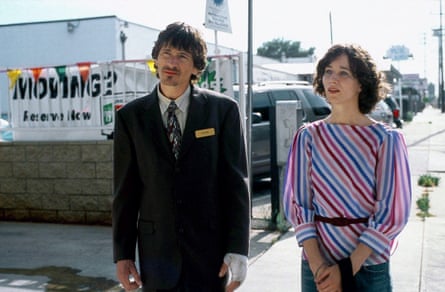
Certainly, she always blurred the lines between herself and her protagonists. But When All Fours was published, it couldn’t escape anyone’s notice that July herself has a child, roughly the same age as the narrator’s, and separated from her husband two years before the book’s publication. Of course, it’s always assumed that authors borrow from life, but this seemed like a different order of autobiographical fiction. Being honest about feelings, even destructive, primitive, contradictory, overwhelming ones, is daring enough, but marrying them to real-life events felt cataclysmic, which almost created a feedback loop. Readers felt the story was so audacious it had to be true.
They were invested in the truth of it, to the extent that, during a Q&A after a reading, “someone asked about Davey being a dancer, why was he?” says July. “And I went through the whole thing of my process, why I came up with that, and I could just feel the room kind of deflate. They wanted him to be a real dancer.”
“My actual friends,” July says, her voice rising in mock outrage, “they know that so much of this didn’t happen. It definitely didn’t happen the way it’s written in the book. But even as I was talking to a writer friend, she said, ‘I keep forgetting that you didn’t just do what you did in the book. You had years of couples therapy and this long conversation with your husband, it’s totally different.’ And I was, like, ‘Are you kidding me?’ You have to hold that in your head. How is anyone else going to believe this isn’t real, if my friends can’t even remember?”
What about her ex, though – Mike Mills, also a film-maker, Oscar-nominated in 2017 for his movie 20th Century Women? Did he mind, or was he fine with it? July looks at me sardonically. “I don’t think those are the only two conceivable feelings.”


The pair met at Sundance film festival in 2005, both there with their first movies. “So we met as artists, and we always talked about how there’s this bubble that’s sacred for each of us, you keep the bubbles separate. You know, you each get your own world, and you have your freedom within that. And so it’s not like it’s always easy, and for sure, there were parts of this that were hard. There’s a part of it that was very personal for him – this is the mother of my child, we’ll know each other for ever. And then there’s the part that’s a fellow artist. I remember him saying to me, ‘I think you’re at your best when you’re closest to the bone as a writer.’ So it’s not great, it’s not safe, but that was helpful to me to hear. I felt like the risk was worth it. The reward for not risking it seemed too modest.”
A couple of months in from the publication of All Fours, everyone had a story about a woman who’d read it and blown her life up. But if you took a stroll through Goodreads, which is a kind of all-comers citizen book review site, something else stuck out: the people who one-starred it (about 5% of almost 140,000) didn’t just hate it, there were actively angry with it. The rage was fascinating. It was as if they’d been slapped. Many were angry at how graphic it was (there’s a famous, sexy scene with a tampon that would probably be a spoiler to describe). Commenters took umbrage. “It would be great if I could read a book by a well-known female author who wasn’t under the impression that descriptions of cutting matted hair from a dog’s ass or running her hands under her lover’s pee was ‘original’, ‘sharp’, or ‘illuminating’ writing,” wrote one. Many prefaced their scorn with the belief that women’s bodies were brilliant territory for a writer – uncharted, tumultuous, mysterious – just not like this. This gave them the ick.
More than that, though, they were angry with the narrator, and nowhere was the conflation of fiction and fact more complete; if she was narcissistic, self-involved, “immature” then so was July. “Yeah, I need to talk about that with someone,” July says, “probably not you.” (I wish it could be me, but it sounds like she means a therapist.)
Sometimes, it’s just that they weren’t expecting it – “They thought it was going to be a beach read.” But more importantly, “They’re very sympathetic to the husband.” Of course, it’s that – no question, he is betrayed by the narrator, not just with this brain fever emotional infidelity, but on an even more basic level; it’s that he’s so nice, so personable, so thoughtful, so empathetic, and yet … he’s not enough. “And I’m thinking, ‘I created the husband, too! So he’s also me!’” she says, laughing. This is possibly the most radical act of the book: not a woman getting divorced, but a woman leaving a Good Guy.
The husband gets annoyed just once: when the narrator posts a photo of herself on Instagram, dancing suggestively. This section, which follows a period where the narrator works out in the gym and strives for a perfect physique, surprised me – it’s such a mainstream thing to do. It’s not a thousand miles from real life, either, as July also likes to uploads videos of herself shaking her insanely perfect, pretty much unshakeable ass (though fair play, the dances themselves are anything but mainstream). Today, July bristles a bit at the suggestion her character is in thrall to a beauty ideal when admiring her ass. “No, she’s been taking nude selfies, and then she’s surprised to see, ‘Hold on, it does look a little different down there.’ I think that’s what I was trying to capture.” Then she elaborates: “If ever I have something to do with fashion, or frankly, even if I just get quite dressed up and I’m photographed because I enjoy that, I do have conversations with other prominent women writers that are like, ‘I make sure that no one sees me having too good a time.’ I think, for women, the measurement of what seriousness looks like is still masculine.”
after newsletter promotion

In November last year, July launched her Substack. It became a muster point for people who relished talking about the book, but an unusual number had also made a great change in their lives after reading it. What was interesting, when I interviewed some of them, was the sheer range of situations. There were readers who didn’t need an LA literary novelist and performance artist to tell them they were allowed their own feelings – readers who were already queer or polyamorous or non-binary, who nevertheless found a new permission to just get out of whatever situation they were in, forgo the security of a relationship for something more authentic and exploratory. There were readers who were from incredibly conservative backgrounds. There were women who didn’t leave their relationship, who simply left a job in which they felt no appreciation. There were women who changed the way they had sex. There were women who changed the way they related to their children, changed the time or attention they gave to friendships. We weren’t looking at a divorce manual, in other words, but “permission to be undone”. No wonder some people were angry. That is an incredibly dangerous licence, socially. A lot of things really rely on women who’ll hold it together for others, regardless of their own feelings.
July says that the scale of readers’ responses has felt like more than an unusual wave of appreciation for a previously respected but niche artist and writer. “I had this movie [Me and You and Everyone We Know], that was the big change for me,” she says. “That experience was really about me, a new voice. All Fours is really about women. Reading and hearing about other people’s stories – the sense of isolation, the shame that I had while I was writing the book, it’s all been completely inverted.”
This is one of the reasons “perimenopause novel” irks, as a thumbnail – situating these explosive feelings hormonally is just another way to say these feelings will pass, so don’t matter. But July is relaxed about that. “There have been different phases of shame and fear while I’m writing – there was more shame when I was younger. Then I got to the perimenopause and that was the last thing I wanted to be associated with. All the time I was writing, I was just thinking, ‘Why am I doing this? I can’t stop myself.’” The menopause conversation is much more developed in the UK than the US, she says, where nobody talks about it. “You could have a whole relationship with your gynaecologist and really not have it come up. Or you could say, ‘I have these symptoms,’ and they’d say, ‘If you’re suicidal, you can take hormones, but otherwise just ride it out.’ And that’s in LA!” It makes me think of all the other ways in which women in the US are peculiarly under-emancipated – not the recent, terrifying anti-abortion legislation, but the bread-and-butter stuff, such as the lack of significant maternity leave; does that feel connected? “I think it’s very intertwined with the healthcare system. We just don’t have reliable healthcare, period. So menopause is a luxury problem.”
She notes, wryly, that “we don’t actually have a problem with rich, aspirational women” as protagonists, they just can’t be dissatisfied. It’s funny: on a Zoom she looks younger than her age, but not artificially so, or massively groomed; but in public, I’ve always found her stunning appearance incongruous, like, how can this woman feel out of place?
July’s The First Bad Man is 10 years old now, and even though it is mainly powered by sexual fantasies, they are so extravagantly weird that, when I read it, I didn’t even realise it was meant to be erotic. (That was partly context – literary erotic fiction wasn’t really a thing, then. You were either a Fifty Shades reader or you read grown-up stuff.) It wasn’t until July spoke at a book festival and described how she was masturbating so much while working on the book that her writer-friend said she had to sublimate, the way athletes do, or she was never going to finish it. Which was news to the audience just because, you know, who’s ever heard “I was masturbating … ” at a book festival?
Technically, All Fours is a work of erotic fiction, which has a definition: that the sex doesn’t just happen, the characters are advanced by it. At the same time, it’s not a sex-beach-read, because that’s not July’s style. “Sometimes I pick up a book at the top of the bestseller lists, just to understand what’s going on,” she says. “I’m reading a romcom called Funny Story. I was shocked by how graphic it is … I don’t think I’m prudish, I was a prostitute [shorthand for promiscuous, not literally a sex worker] at times in my life.”
All Fours aims to do something different. “The joy of it, for me, was writing a thing I hadn’t seen written about sex, either because what constituted sex was new, or because nobody had ever described, like, a woman who takes a long time to come; the thoughts of the other person: is this a fool’s errand? Will I be able to do this? It was just really funny to me: ‘Tell me if you need a vibrator, tell me if I’m just gonna keep going at this. You know, if it’s humanly possible.’”

Yet this definitely isn’t slapstick sex; it’s meant, and felt. The narrator and her friend make a rigid distinction between mind-rooted fuckers and body-rooted fuckers – mind-fuckers are imagining a scene as they have sex (in one memorable description between the narrator and her husband, she says it’s like she stuck a giant TV to his head); body-fuckers are absolutely engrossed in the sensations of the body, their mind is nowhere – and there’s a memorable scene for that, too.
What was the reason, creatively, that the narrator and Davey never have sex? “The point was to build it to this place where you felt like those were the only two options: she’s either going to have sex or she’s going to go home. I wanted to use all that built-up energy, that obsessive loop, so another way of thinking would present itself. That playing field, while it’s completely addictive to read about – and to live, frankly – is ultimately quite small. But it can be transformative, it can push you into the next area of your life. If the end result is that you fuck Davey, you might not get that birth of complexity.” Then she says the most surprisingly romantic thing. “When someone sees you, in a particular way, and that part of your soul that hasn’t really been seen is seen, it won’t go back into the box. And that’s a big problem, because your life isn’t built for it to come out of the box.”
We speak before July travels to the UK for the Women’s prize. “Sometimes people will tip you off that you’re not gonna win. I’ve been looking for that email, and haven’t had it yet. But the important thing about this book is what it’s done to the conversation, for the culture. I don’t know if that’s the thing literary prizes are for.” ( In the end, she lost out to Dutch debut novelist Yael van der Wouden.)
It must feel strange and vulnerable, at this moment, to be an author who stands for – maybe not everything, but a huge amount of things that the US government absolutely cannot tolerate, whether that’s female emancipation or sexual and gender fluidity. “I tend to think the people who are most vulnerable to this are not so visible. What’s the deal with my neighbours? I’ve known them for 20 years, but I don’t know who’s here legally, why would I know their business? Who’s gonna notice if two of the people in that house are gone?” But it does touch her personally, and not just as a neighbour. “It’s really hard to get a grip on,” she says sadly. “Whether the most extreme takes are actually the most clear-eyed. Whether the people who are moving [abroad] have it right. I’m trying to figure that out right now.”
Unlike her narrator, July did make it to New York, last week, where she entertained her friends in her hotel room (which will, if you’ve read it, remind you a lot of All Fours). This is how she described the experience on her Substack: “Two of my visiting friends were my age and both of them, in different ways, spoke about looking older, the hardness of that … One friend and I showed each other our thighs in the light to make sure the other one really saw our cellulite. I told her the truth: I had assumed hers was much more extreme because of how she had spoken about it over the years. For years, I had placed her in a different category from myself, cellulite-wise.” And that’s July – the political, the personal, the public, the intimate, the things you’re not supposed to think about if you want to be taken seriously or thought of as truthful, all with a voice that’s entirely relatable yet completely idiosyncratic.

 15 hours ago
7
15 hours ago
7











